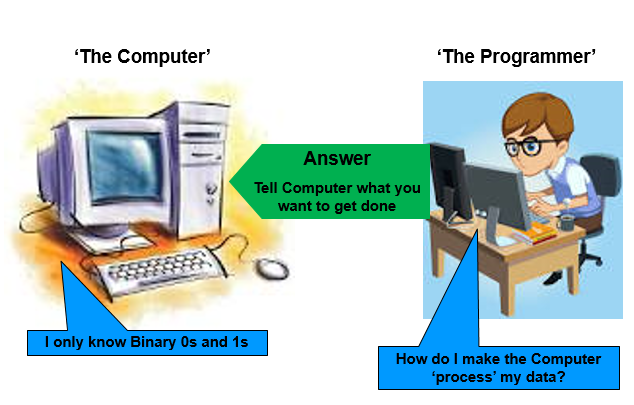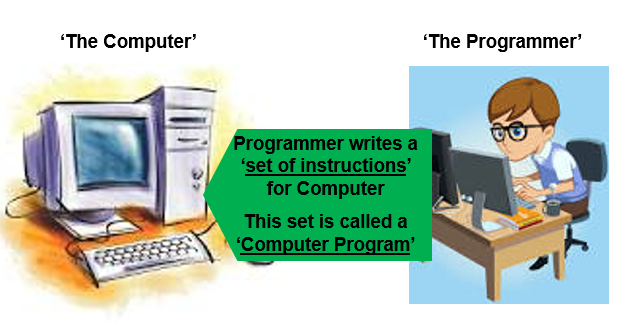Before we start, let me give you some basic concepts.
What is a Computer?
A computer is an electronic device that can follow instructions to
- Accept input (data)
- Process that input
- Produce output (information)
Information: When data is processed, organized, structured or presented in a given context so as to make it useful, it is called Information. For example, the class' average score or the school's average score.
A computer is an electronic device operating under the control of instructions (software) stored in its own memory unit, that can accept data (input), manipulate data (process), and produce information (output) from the processing.
Generally, the term is used to describe a collection of devices that function together as a system.
What does a Computer do?
Computers perform four general operations which make up the information cycle.
- Input
- Process
- Output
- Storage
Devices that comprise a Computer System
Introduction to C++ Programming
Computer Programming:
Computer Programs:
Programming Languages
Programmers write these instructions in different programming languages.
Machine Languages:
- Strings of 0s and 1s
- Directly understandable by computer
- Defined by hardware of the machine
- Hard for human beings to learn, error prone
- Slow programming
- English like abbreviations
- Not directly understandable by computer, hence require translator programs called "Assemblers"
- Relatively easier for human beings to learn
- Slightly faster programming
- Developed for fast and speedy programming
- Not directly understandable by computer, hence require translator programs called "Compilers"
- Not dependent on hardware of the machine (mostly)
- Easy to learn, less chances of error
- Fast programming
Why C++?
C is a language designed by and for programmers. C++ is an expanded and enhanced version of C programming language. It is the language of choice for professional programmers worldwide. Once mastered, C++ will give you complete control over the computer. C++ is, above all, the most powerful programming language ever invented.
Compiler
Basics of a typical C++ environment:
- Program-development environment
- Language
- C++ standard library
The C++ Standard Library
C++ programs consist of pieces/modules called classes and functions. A programmer can create his own functions
- Advantage: the programmer knows exactly how it works
- Disadvantage: time consuming
- If a pre-made function exists, generally best to use it rather than write your own
- Library functions are carefully written, efficient and portable
- Edit
- Preprocess
- Compile
- Link
- Load
- Execute
Program Translation:










Post a Comment